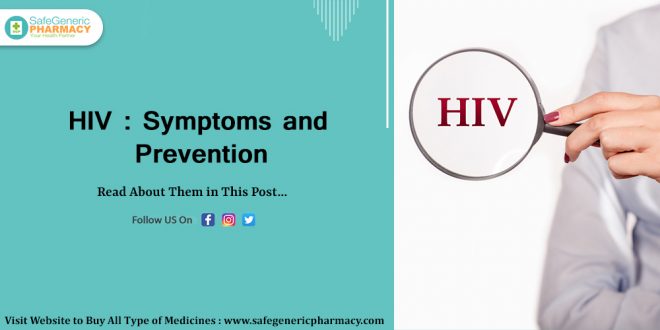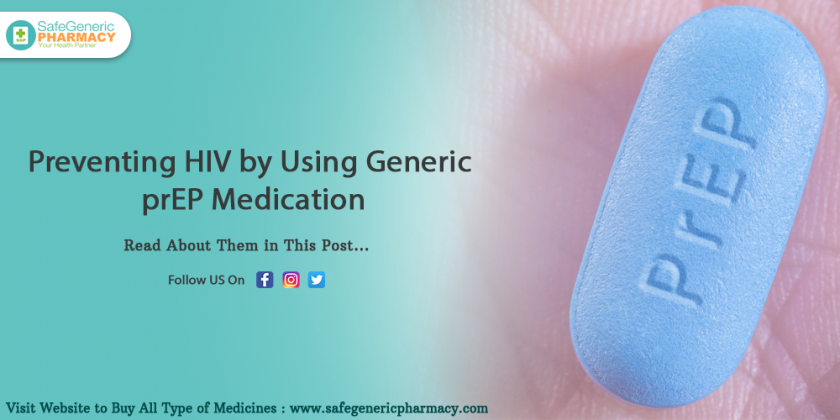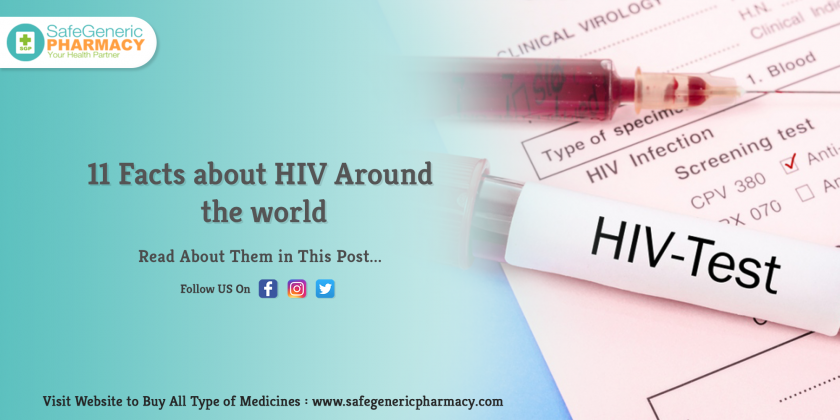What is HIV?
HIV assaults the body’s immune cells, specifically focusing the white blood cells called CD4 cells, which are a significant subset of T cells.
CD4 cells boost the body’s immune system to battle infections.
If HIV is not treated, the body finds it’s hard to battle infection.
Individuals with HIV have a higher possibility of getting certain infections and furthermore immunodeficiency-related cancers, and these risks significantly increase when somebody is not accepting treatment.
Read Also : Different option for Getting longer eyelashes
Transmission
HIV is named as a sexually transmitted disease, but it can be transmitted in different ways.
It is gone on through contact between some bodily fluids and mucous membrane or harmed body tissue.
These fluids are:
- Vaginal fluid
- Rectal fluid
- Semen or preseminal fluid
- Rectal fluid
- Blood
- Breast milk
Transmission can occur because of:
- Vaginal, anal, or oral sex
- A mother passing the infection to her child during pregnancy, delivery, and breast-feeding
- Contact with blood, semen, cervical, or vaginal liquids where the virus is available
- Sharing of needles and other paraphernalia for infusing drugs or medications
It can’t be gone on through:
- Water or air
- Sweat, tears, or kissing
- Insects or pets
- Sharing bathroom facilities, food, drinks, or crockery
To secure the infection, these bodily fluids must come into direct contact with a mucous membrane or harmed tissue. The rectum, mouth, penis, vagina, and all contain mucous membranes.
To be transmitted by a syringe or needle, the infection must be directly infused into the circulation system.
Symptoms
Indications of HIV can differ from individual to individual.
A few people build up a flu-like illness one month after the virus has been transmitted.
Another notice swelling of their lymph nodes, most commonly under the arms, around the throat. There may likewise be a rash.
A few people don’t experience any symptoms for a long time. The best way to make sure is to undergo a test for HIV. Any individual who thinks they may have the infection should talk with a health provider.
At stage 1, the acute phase, there might be symptoms of illness, similarly as with different viruses. After this, the infection stays in the body, but it is dormant. With treatment, the individuals may not experience indications once more.
The indication of each stage are as follows:
Stage 1: Acute
Inside one month, individuals who have the virus may start to experience the symptoms previously mentioned. This is often the body’s natural reaction to an infection.
At this stage, the infection is quickly replicating all through the body. Elevated amounts of the infection will be present in the blood and other bodily liquids, and the virus is contagious at this time.
However, symptoms can be gentle and may go unnoticed. Individuals often don’t understand they have the infection.
Specific symptoms include:
- Fever
- A rash that usually does not itch
- Additional flu-like symptoms, for example, muscle aches, sore throat, night sweats, and severe tiredness
- Swollen organs for example in the throat, and armpits
- Ulcers or Sores in the mouth or the genitals
- Nausea and vomiting
In this stage, HIV antibody discovery tests might be harmful.
This period of about one to two weeks, when a test is negative, but HIV has been transmitted, is generally alluded to as “the window period.”
The individuals who have HIV create antibodies to HIV antigens somewhere from 3 weeks to 3 months after being getting the infection. Even if tested, the antibodies might not give a positive test until one month.
Stage 2: Asymptomatic (dormant)
This stage is likewise alluded to as chronic HIV. The infection is still active but recreates at lower levels. There might not be any visible symptoms, and the individual may not become ill.
Individuals who are regularly taking the antiretroviral drug may stay in this phase for several decades. They may never suffer from any further symptoms.
Antiretroviral medicine can now be able to diminish the viral load until it is so little that it is imperceptible.
Those who have hidden levels of HIV in their blood will not transmit the infection.
Individuals with HIV who take the antiretroviral drug as recommended by their supplier have the best chance of having low levels of HIV in their body.
Without treatment, individuals may spend a decade or longer in the dormant stage. For specific individuals, this phase may progress quicker.
However, even without symptoms, the infection keeps on multiply and decimate immune cells. A few people may create mild infections or symptoms, including:
- Swollen organs in the armpit, groin, and neck
- Fever and night sweats
- Diarrhea
- Severe psoriasis
- Blood count abnormalities such as low white blood cell or anemia counts
- Tiredness
- Weight loss
Preventing HIV
Individuals can protect themselves from HIV by finding out about the risks and how to avoid them.
Utilize a condom for protection from a range of STDs when engaging in sexual performance.
Keep in mind that if an individual uses their drug rightly, and tests demonstrate that their viral load is hidden, the virus cannot be transmitted.
Always utilize new and clean needles and never share them with others.
Another prevention technique is preexposure prophylaxis or PrEP. This is a daily tablet for individuals who have a high risk of HIV. So far, the U.S. FDA (Food and Drug Administration) has approved one formulation of Tavin Em PrEP.
Checkout Also : Careprost Eye Drops — the Ultimate guide about Eyelash Growth




